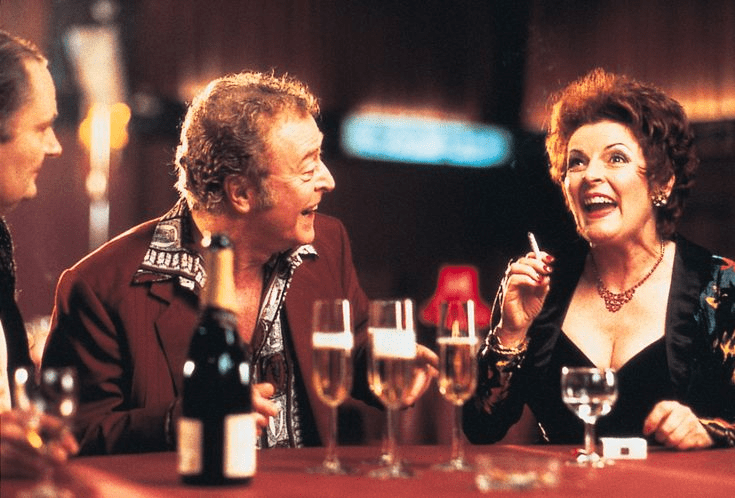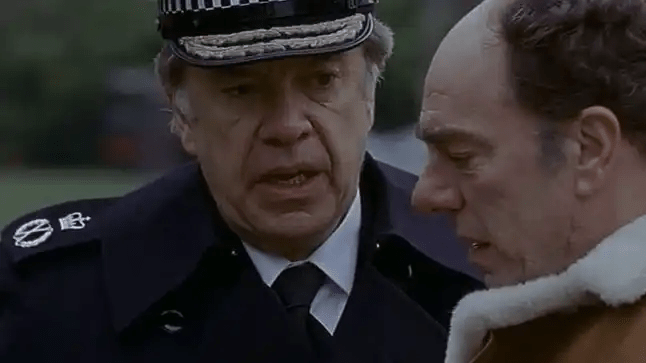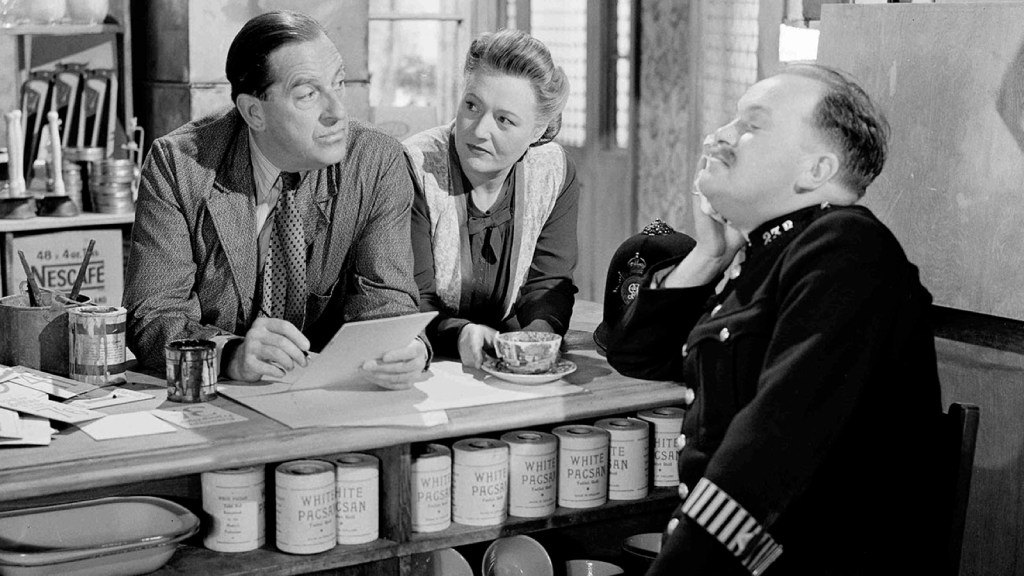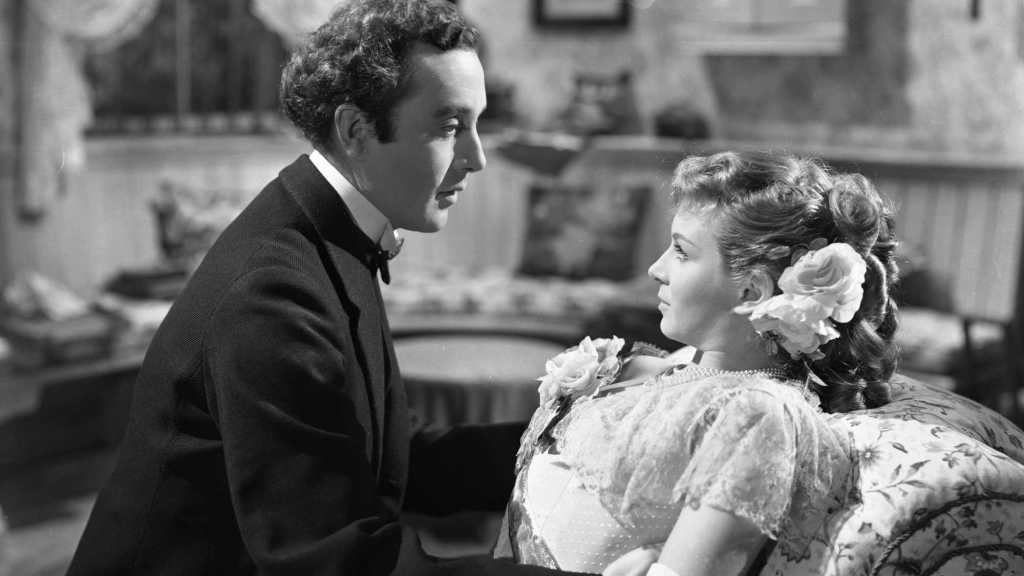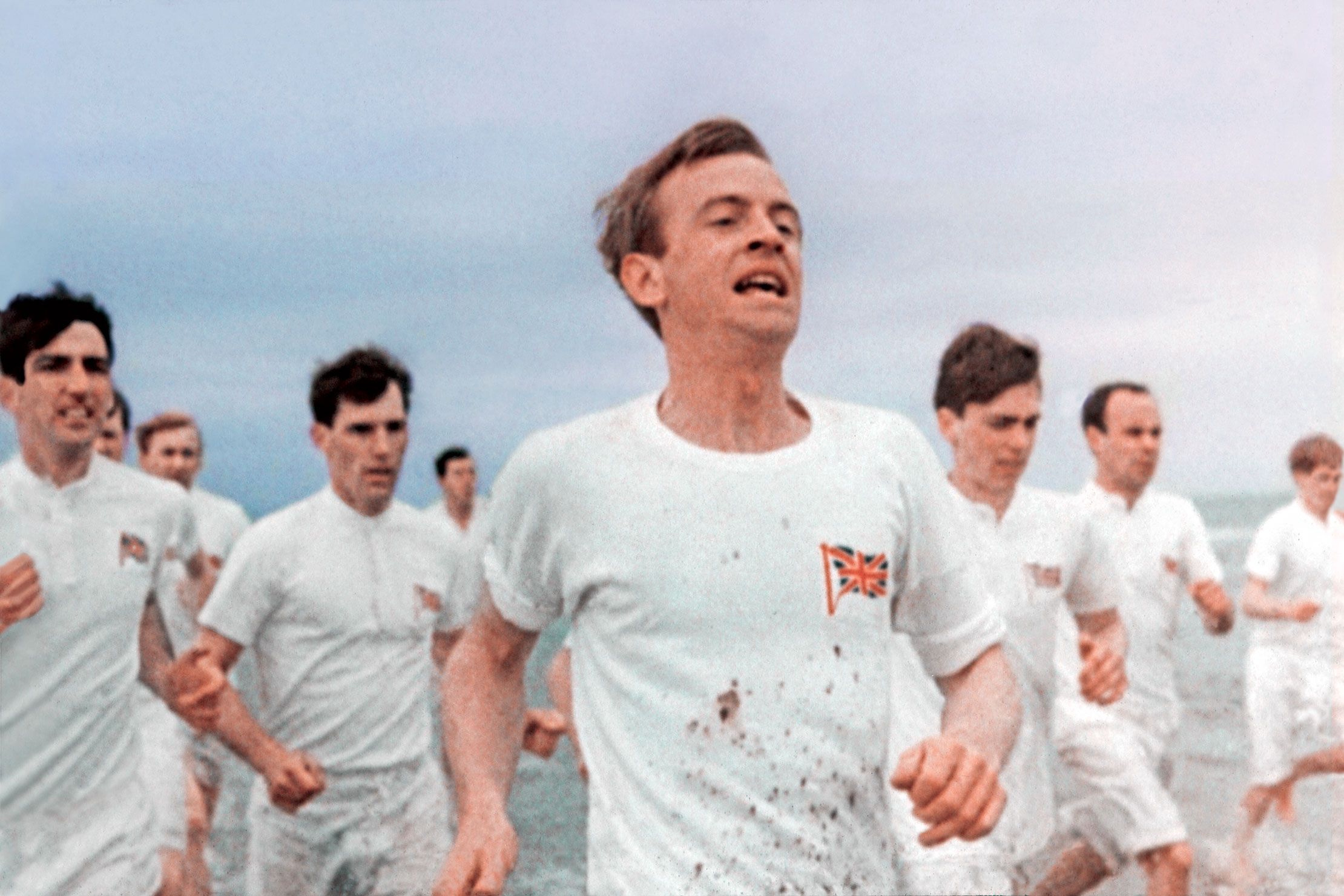
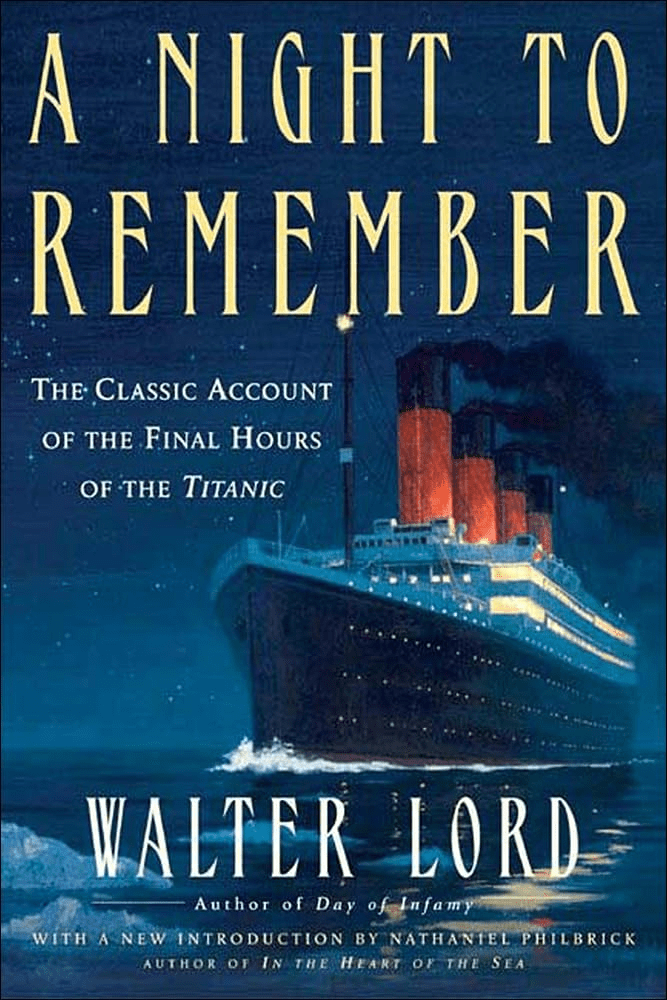
The story of the Titanic is so well-known today (not least due to James Cameron’s mega-budget mega-hit 1997 movie) that the The Onion could run the headline “World’s largest metaphor hits iceberg” confident that everyone would get the joke. But the modern cultural obsession with Titanic goes back less than 70 years. The liner’s sinking was worldwide news in 1912, but two world wars and four decades later, it had faded in popular memory. This changed in 1955, when a virtually unknown advertising copywriter named Walter Lord published a riveting minute by minute account of the disaster based on historical archives and interviews with survivors. A Night to Remember quickly became an international best-seller and has never been out of print since. Producer William MacQuitty, who had seen the launch of the mighty ship as a child, knew an opportunity when he saw it, and with input from Lord made one of the greatest films in British cinema history, 1958’s A Night to Remember.
This would normally be the part of the review where I summarize the plot, but that would be supererogatory here. How the story unfolds in the excellent script by Eric Ambler (who also wrote the script for another of my seagoing recommendations, The Cruel Sea) is however worthy of description. Setting the template for countless subsequent disaster films, the movie intersplices the main event with small moments of human drama, brilliantly carried off by an army of British actors under the direction of Ray Ward Baker, who never rose to a greater height.
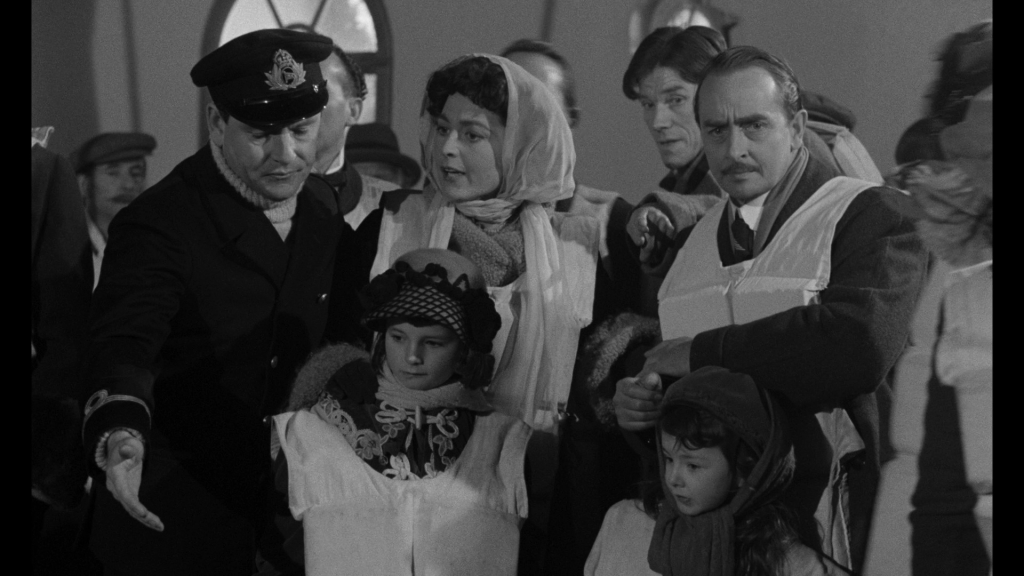
Kenneth More, perhaps Britain’s biggest movie star at the time, convincingly leads a matchless cast as the resourceful, brave, and dutiful Second Officer Lightoller (who was like most of the characters in this docudrama film, was a real person). I also admired Laurence Naismith’s turn as the captain of the doomed ship, particularly how much emotion and thought he conveys without words. Of the character parts, John Merivale as Robbie Lucas saying goodbye to his wife Liz (Honor Blackman) and their little children with false assurances that he will see them ripped my heart out. Another unforgettable moment: Ronald Allen leading fellow working class passengers from steerage in a desperate run for the boats until all of them stop in their tracks, dazzled by the sight of the opulent first-class dining room.

Of course a movie like this needs visual spectacle to work, and a Night to Remember is a huge success on that front. The budget was well-spent on lavish, realistic sets, including some that tilted with such convincing groans from their machinery that these sounds were left in the film to convey the heaving of the ship. The special effects are out of date of course, but still credible. And Geoffrey Unsworth, soon to become one of Britain’s most respected cinematographers, is in fine form (I have highlighted his other work here, here, and here) N.B. Be sure to see the Criterion Collection restored version and not one of the battered prints that circulated for decades.
A Night to Remember was a hit in Britain, but didn’t draw much of an audience in the United States, perhaps because it’s so very British in sensibility and also because it gave the American passengers little attention (the most visible being the Unsinkable Molly Brown, who is played by Tucker McGuire mainly as comic relief). But its critical reception was very warm indeed and it is today justly appreciated internationally as a cinematic masterwork.
p.s. Trivia for spy film fans: this film is packed with future espionage stars including Blackman (The Avengers and Goldfinger), David McCallum (The Man from U.N.C.L.E.) and no less than 4 men who went on to play Q in James Bond films.






